What Being a Pediatrician has Taught Me About Building Resilience By Dana Kornfeld, MD
As a pediatrician, I take care of children of all ages, all day long. It’s the best job in the world, I often think, spending the day with children and teens. I get to hear their stories, share their successes and their pain. I am privy to their disappointments and their triumphs; see them when they are feeling strong and resilient and also when they are filled with angst and pain. There is never a day that goes by that I am not conscious of this privilege.
I also spend my day with mothers and fathers. And each day I am uplifted and humbled by the amount of love that comes through my door.
Along with that love comes worry. Parents worry about their children’s health and emotional well being.. They want their children to be happy, well adjusted, well liked; they want them to feel good about themselves. They are worried about what their children are exposed to in our society, about a media-driven culture that seems all consuming. They want to know how to keep their children safe; how to impart important values to their children; how to foster happiness.
Many of the pressures children have always faced feel intensified in our times. Not only do children have the normal developmental stressors such as peer groups, changing bodies, concerns about body image and sexuality, but they are increasingly exposed to an explicit media that inundates them with images of drugs, sex and violence that can make them feel anxious, alienated and hopeless. They are bombarded with a continuous influx of information that they might not be mature enough to process. Media images may indoctrinate them to value beauty, thinness, popularity and wealth more than respect, kindness, intellect and giving back to their community. The stress they feel can lead to emotional disorders such as anxiety and depression, and can lead to maladaptive coping mechanisms such as eating disorders, drugs and alcohol, and early sexual involvement.
How do we as parents and communities protect our children from this stress while still promoting emotional growth, independence and individuation?
Again and again, day in and day out, as I spend my days talking to children, teens and parents, I have found one major thing to be protective against stress and capable of fortifying strength, happiness and resilience. It is the family. As important as the peer group is for children, the foundation of resilience lies in the relationship with family.
As a pediatrician, these are some of the things I think we as families and communities can do:
We can teach our children to value themselves as people, to de-emphasize physical appearance and stereotypically ideal body shapes. We can be actively critical of the cultural values that over-emphasize the importance of physical traits of thinness and perfect beauty. We can encourage our children to recognize the insidious and dangerous nature of these cultural messages and to actively criticize them. We should continually point out to our children how we get brainwashed by media images of “perfect” bodies, expensive clothes, products we don’t need. As we read with them, or watch a movie with them, or go shopping with them we can try to help them interpret the culture in a way that is empowering to them. We can encourage them to embrace a more positive self-definition by focusing on what they think about and value, and by encouraging, especially as they get into adolescence, healthier self-definitions that don’t involve physical attributes.
We can encourage our children to be courageous. Yes, we need to teach them about the dangers in the world and try to keep them safe but at the same time, we cannot overprotect them, because independence breeds strength. This takes a lot of work for us parents. We need to do our research to identify age- appropriate risks; we need to do our own soul-searching to evaluate when our own anxieties or past experiences may be shaping our decision- making and limiting our child’s experience. We live in a dangerous world but our children have to explore and live their lives. We need to figure out that balance of keeping them safe but not letting our own fears prevent them from taking on enriching and growth-inspiring challenges. Hence, the old adage: We need to love our children so powerfully that we can let them go.
We can help our children manage their pain and stress by validating it, by acknowledging that pain is a part of life. As parents, it is difficult to see our children experience disappointment, defeat, rejection or any negative experience. But if we can listen to them without letting our own anxiety overtake us; if we can try not to fix things for them but to listen to how they feel and accept their feelings, they will be more willing to talk. By doing this we can help our children accept the discomfort of painful experience as an inevitable part of life. We can also help them find outlets that have worked for us: exercising, journaling, listening to music, meditating, connecting with others. When children are listened to and heard, when they can express their pain, it is less likely to implode inward and manifest as self-destructive behaviors..
We can be active listeners to our children when they speak to us, gently guiding them to reach their own conclusions by asking questions and not telling them which direction they should take. We can demonstrate respect for their conclusions even when we don’t entirely agree because we are respecting their individuality. When they make mistakes we can try not to catastrophize, because we are acknowledging that mistakes are a part of life and that is how we learn and grow. When they make good choices, we can congratulate them on their maturity, insight or good judgment. We can offer unconditional love but also structure and high expectations for moral and appropriate behavior.
We can continue to share our values and ideals with our children. Even when they go through stages of their lives where they may reject our values, if the seeds of important values have been planted, older teenagers will often come back to them even when they transiently stray. Having been in practice long enough to take care of the babies of teenagers I cared for, it is so very heartwarming to see how good values are passed down generation to generation (even when they didn’t look like they would be!)
We can help create family rituals that sanctify time, whether that is family dinner or talking before bed at night. We can make sure we celebrate events; celebration helps make life joyous for children.
We can spend time in nature, taking hikes, riding bikes, or looking at the stars. Nature is healing to children, and to us as parents, and our media-saturated society has caused us to be alienated from the natural beauty that can nourish our souls.
We can help children find causes they believe in that give them perspective on their lives and make them feel part of a larger community. This sense of community, reaching out to others, feeling connected, is healing and growth inspiring. It gives children – and all humans for that matter – a sense of meaning.
Perhaps every generation of parents has thought that what their kids experience is beyond the pale, but at the end of the day, growing up is hard. We can’t prevent our children from the pain that is an intrinsic part of being human, but we can continue to but we can continue to provide them with the love, support, and tools they need to navigate their journey with resilience and hope.


